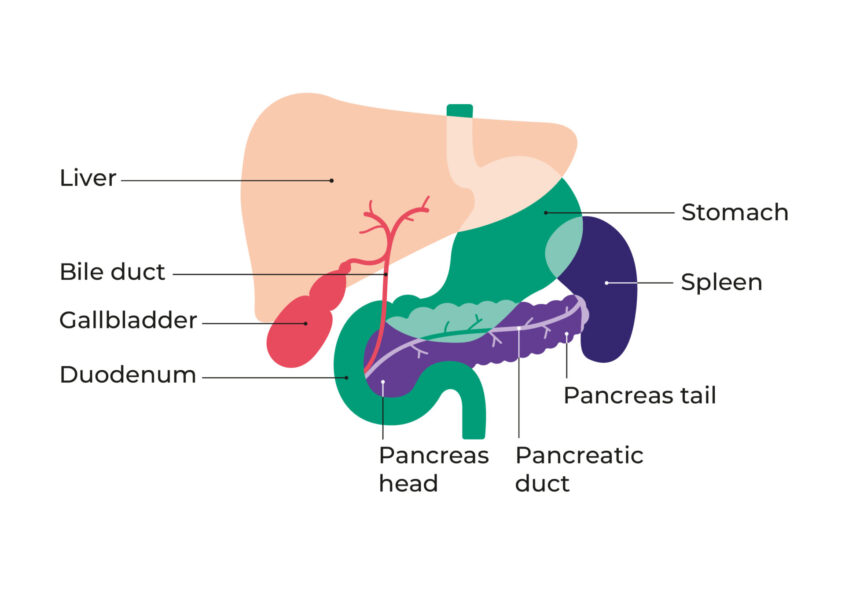Our nurses can help
Call, email or WhatsApp our specialist nurses with your questions about digestion and nutrition.
The pancreas produces enzymes that help to break down food. This is part of digestion. Nutrients from the food can then be absorbed into the blood and used by the body. Different pancreatic enzymes help to break down foods containing fat, protein and carbohydrate.

Call, email or WhatsApp our specialist nurses with your questions about digestion and nutrition.

Updated March 2025
Review date March 2028